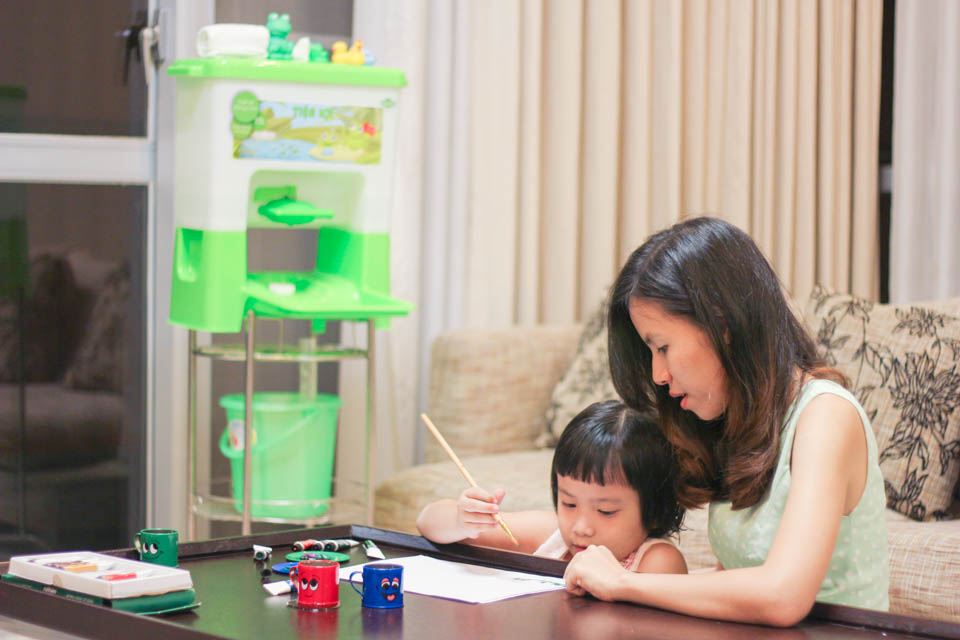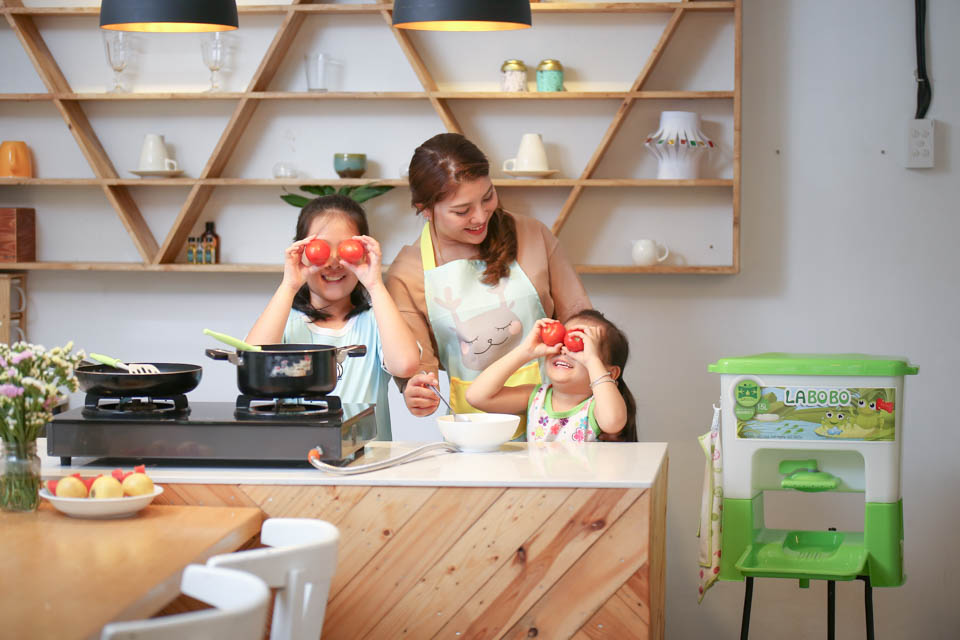Changing the message: to promote handwashing, we need to stop talking about it
Marketing hand-washing-enabling technology is neither about the technology nor actual hand washing. HappyTap CEO Geoff Revell argues that tapping into people’s emotions and aspirations leads to greater adoption of portable sinks and lasting behavior changes, and describes how developing consumer insights has helped the startup change the way hand washing is promoted in Vietnam.
When HappyTap began laying the groundwork to promote hand washing in the Vietnamese market, we understood that improved hardware is not a silver bullet. Rather, a well-designed portable sink is a critical component of a comprehensive solution that resonates with Base of Pyramid (BoP) consumers. These consumers are parents and caretakers of small children who, after decades of education campaigns, knew well the importance of washing hands with soap, but were still not doing so consistently. As a result their children were at risk of diarrheal and infectious diseases. Health messages were not effective. Thus, we hypothesized that the right product at the right price, promoted with messages that mattered to consumers and made accessible through a retail network, would be a winning combination to end a stubborn problem.
The HappyTap team designed the LaBobo portable sink using insights from target consumers, set up local manufacturing that would ensure the product stayed affordable, and sold the device through grassroots efforts. Dozens of sales agents held small sales events at local markets or knocked on doors to sell each unit. We sold thousands of units through a painstaking process that was not cost-effective, but validated that LaBobo is indeed a commercially viable product. The process also allowed us to collect valuable insights about BoP consumers in Vietnam – their preferences and barriers to washing hands.
Promoting hand-washing technology is not about the actual technology.
LaBobo is a low-tech product designed to nudge people to wash their hands. Its smart design makes hand washing easy and convenient; its bright color and decal is eye-catching in order to stand out as a reminder for people to wash their hands. It is a crucial part of the mix, but we learned quickly that design alone will not sell families on the idea of hygiene and hand washing.
That lesson came in the first 15 months of HappyTap’s existence when the portable sink was promoted as Tien Loi – a brand focused on savings and convenience. During that time, the HappyTap sales team realized that educating villagers on product benefits was fruitless. In sales interactions, customers were quick to see the logic of having a device designed for hand washing. However, customers were also quick to point out any challenges in using the product. For example, the portable sink has a 15-liter water tank – large enough for multiple washes – but still requires regular refills. Sales staff debated product advantages and disadvantages with potential customers and often lost the sale. Success came only when sales staff pivoted away from product-focused messages towards emotional messages.
Health messages elicit little emotional response.
Families across Vietnam have been exposed to hand washing and health campaigns for decades with little outcome in terms of changed behavior. Posters outlining the six steps of hand washing and cartoons depicting the health consequences of dirty hands were already ubiquitous across the country. We wanted to stay clear of repeating tired campaigns and breathe new life into hand washing. To do so, we needed to stop talking about hand washing.
Few organizations understand this concept better than Hanoi-based Asia Injury Prevention (AIP) Foundation, a road-safety NGO that was highly influential in getting motorcyclists in Vietnam to finally start investing in and wearing helmets.
In 2002, AIP set up local manufacturing of a helmet people would want to wear and, in collaboration with advertising powerhouse Ogilvy & Mather, spearheaded aspirational marketing campaigns to tackle the real barriers for why people didn’t wear a helmet (“it ruins my hair”) versus the safety basics people were used to hearing. While many factors contributed to changes in behavior, by 2007, 93% of the 20 million motorcyclists wore a helmet, up from 30% a decade earlier.
It’s no secret Vietnam still has a long way to go to improve road safety. According to the WHO, an estimated 80% of helmets fail to meet quality standards. But AIP’s new product design and aspirational messaging had a massive impact on behavior change and opened the door for a burgeoning market for helmets.
Similarly, the HappyTap team began by conducting focus groups to better understand our consumers’ emotional response to different messages. We organized potential sales messages into themes and how they ranked on Maslow’s hierarchy. We analyzed the responses of 235 participants at 12 different sales events. Our early research showed that sales messages higher on the Maslow hierarchy – such as love of family and prestige – involve more risk, but would potentially generate more sales.
One of the key takeaways from our early research was that while people buy a hand-washing device for the whole family, a young child is almost always at the center of the story. Parents are initially attracted to the convenient features of the product, but when asked deeper questions about why they would invest in a portable sink, they express the desire for their children to have healthy, bright, and better futures than their own.
Thus, we developed new marketing materials and saw a new way to tackle hand washing. We changed the name to LaBobo as a play on the French word for “sink,” lavabo, and used visuals that displayed the product in an aspirational urban setting. The launch of the new branding direction energized the HappyTap sales team and correlated with a spike in sales.

Marketing the category.
Four years after its establishment, HappyTap has made enormous progress towards a commercially viable business around a hand-washing-enabling technology. The social startup is in a much stronger position than ever before, with a level of market intelligence, consumer insight, and hard-won lessons that are incomparable to what we knew at the outset of the business.
Nevertheless, LaBobo still represents a new category of product that most people have never seen before, which is a challenge. Promotional efforts for an entire product category (e.g., hand-washing devices) are expensive and take time, but could prove to be a smart long-term investment. A good example is the insurance sector. When Prudential first entered the Vietnam market more than twenty years ago, consumers were generally unaware of insurance, and demand was close to nil. According to the Prudential team at the time, they had to consider how to translate “insurance” to Vietnamese. But Prudential committed to a long-term strategic plan and did not even start selling their product until four years later.
Today, Prudential has been able to capture first-mover advantage – it became the leading insurer by market share and has maintained that position for over a decade. Getting there required immense patience and significant resources.
HappyTap has managed to introduce “hand-washing device” into the Vietnamese lexicon, but flexible risk capital and time will be necessary to significantly grow the market for hygiene-related products.
Whether it’s breakdancing or yoga stretches, our hands help us do incredible things. Check out HappyTap’s latest videos that put our hands into a different perspective:

